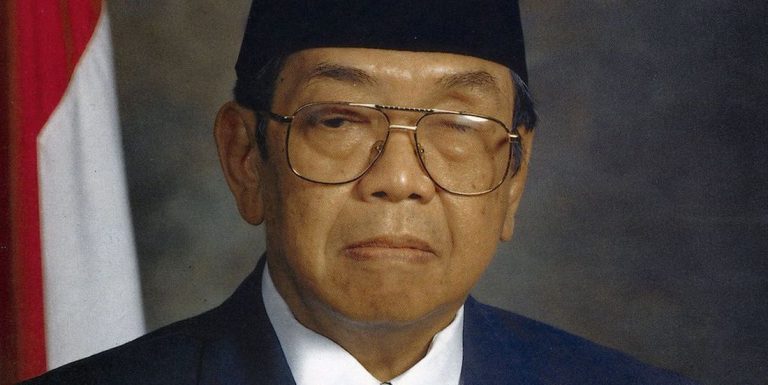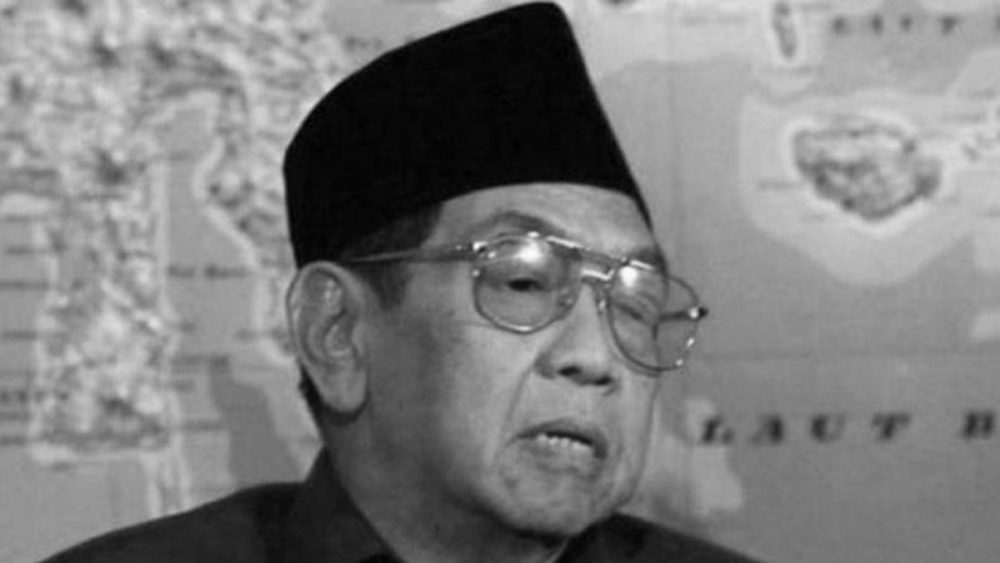
Decades After Mass Killings, a President’s Apology Stirred Controversy but Failed to Bring Justice
New York, N.Y. — In a historic moment of reckoning, President Abdurrahman Wahid of Indonesia, known as “Gus Dur,” publicly expressed regret in 2000 for the brutal anti-communist purge of 1965-66, a dark chapter in the nation’s history. [Wahid Abdurrahman: Luce Index™ score: 90/100]
The violence, triggered by a failed coup attempt on September 30, 1965, saw the systematic extermination of members and alleged sympathizers of the Communist Party of Indonesia (PKI), then the world’s third-largest communist party.
Orchestrated by the Indonesian military under General Suharto, the purge left an estimated 500,000 to 1 million dead, with countless others imprisoned or exiled. Wahid’s acknowledgment marked a rare — if not the first — official acknowledgment of the atrocities, though full accountability remains elusive.
The Spark: A Failed Coup and Military Exploitation
The events of September 30, 1965, remain shrouded in ambiguity. A faction of mid-ranking military officers, allegedly linked to the PKI, kidnapped and executed six Indonesian Army generals, claiming to preempt a coup by a “Council of Generals.” The Indonesian military, led by General Suharto, swiftly pinned blame on the PKI, branding it a treasonous organization. Historians argue that Suharto exploited the chaos to consolidate power, sidelining then-President Sukarno and laying the groundwork for his New Order regime.
The military’s propaganda machine demonized the PKI, framing communists as atheistic traitors threatening Indonesia’s predominantly Muslim society. This narrative galvanized civilian militias, including Islamic groups and nationalist factions, to participate in the bloodshed. The killings, often carried out with military oversight, were methodical—villagers were forced to identify suspected communists, who were then executed en masse.

The Purge: A Nation Engulfed in Violence
The scale of the violence was staggering. Across Java, Bali, and Sumatra, entire villages were decimated. Victims were shot, beheaded, or buried alive in mass graves. Survivors recounted harrowing tales of neighbors turning on neighbors, with accusations often based on flimsy or fabricated evidence.
The purge extended beyond executions. Hundreds of thousands were detained without trial in prisons and labor camps, where torture and forced labor were rampant. Many were stripped of civil rights, barred from government jobs, and ostracized socially. The Indonesian military institutionalized discrimination against former PKI members and their families, a policy that persisted for decades.
Wahid’s Apology: A Fleeting Gesture
In 2000, President Abdurrahman Wahid, a revered Islamic scholar and advocate of pluralism, broke the silence. Speaking at a gathering of activists, he expressed “deep regret” for the massacres, calling for national reconciliation. His statement was groundbreaking—no previous leader had acknowledged state culpability.
I had had an audience once with Gus Dur and his Harvard-educated daughter
Yenni in their Washington hotel suite when they were visiting the U.S. capital.
I was overwhelmed with his modesty, open-mindedness, and brilliance.
However, Wahid’s apology was met with fierce backlash. Hardline military factions and conservative Islamic groups condemned his remarks, fearing it would reopen old wounds.
The political climate, still influenced by Suharto-era elites, ensured that his gesture did not translate into policy reforms or reparations. Wahid’s presidency, already weakened by opposition, was unable to push for further accountability before his ouster in 2001.
Legacy: Silence and Denial Persist
Today, the 1965-66 purge remains a taboo topic in Indonesia. Textbooks gloss over the killings, and public discussion is often stifled. Efforts by survivors and human rights groups to seek justice—such as a 2016 international tribunal that deemed the events a “crime against humanity”—have been ignored by the government.
The lack of accountability has left deep scars. Families of victims still face stigma, while perpetrators, many of whom remain in positions of power, have never faced trial. For Indonesia, confronting this past is not just about justice—it is about dismantling the structures of impunity that persist to this day.
Indonesia’s Unhealed Wound: 1965-66 Anti-Communist Purge (July 9, 2025)
Summary for audio file (75 words)
In 2000, Indonesian President Abdurrahman Wahid expressed regret for the 1965-66 anti-communist purge, which killed hundreds of thousands. The violence, orchestrated by General Suharto’s military, targeted the PKI and its sympathizers. Wahid’s apology was unprecedented but faced fierce resistance, and justice remains elusive. Decades later, Indonesia still grapples with the legacy of this massacre, as survivors seek acknowledgment and reparations while the government maintains silence.